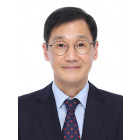Video
Publications
Issue Briefs
Publications | Issue Briefs
Toward a Mutually Complementary Revision
of the ROK-US Nuclear Cooperation Agreement
Shim Sangmin
2,4812025.10.23
The peaceful use of nuclear energy is a sovereign right of every nation. However, in South Korea’s case, the current “Agreement for Cooperation Between the Government of the Republic of Korea and the Government of the United States of America Concerning the Peaceful Uses of Nuclear Energy” (hereinafter referred to as the “ROK–US Nuclear Cooperation Agreement”), revised in 2015, prohibits uranium enrichment and spent nuclear fuel reprocessing in principle, even for peaceful purposes, without prior U.S. consent. This restriction fails to reflect South Korea’s advanced technological capability and practical needs as a world-leading nuclear power.
Coinciding with President Lee Jae Myung’s visit to the United States in August, meaningful progress has been achieved in the field of ROK–US nuclear cooperation. The prospects for further development of this cooperation are strong, as the United States is showing an active commitment to expanding its domestic nuclear power capacity, while South Korea’s nuclear industry possesses the capability to construct reactors within budget and on schedule, manage projects efficiently, and operate a complete nuclear industrial ecosystem—all of which can substantially support the United States in expanding its nuclear power generation share.
In this favorable environment for expanding nuclear cooperation, the Korean government should seize this “window of opportunity” to leverage the strengths of its nuclear industry as a bargaining tool. By contributing to the enhancement of U.S. nuclear capabilities, Seoul can help create favorable conditions for concluding bilateral trade agreements. Moreover, to ensure the long-term sustainability of South Korea’s nuclear industry, the government should seek a revision of the ROK–US Nuclear Cooperation Agreement that grants comprehensive authority for uranium enrichment and spent nuclear fuel reprocessing. Such a revision would also serve to elevate the ROK–US alliance into a true technological partnership.
This article is an English Summary of Asan Issue Brief (2025-33).
(‘한미 간 상호보완적 원자력 협정 개정 방안’)

Shim Sangmin
Senior Research Fellow
Dr. Shim Sangmin is senior research fellow at the Asan Institute for Policy Studies. Prior to his current position he worked as professor (non-tenured) at the Graduate School of Green Growth and Sustainability at KAIST from 2023 to 2025, as research fellow at the Asan Institute for Policy Studies from 2022 to 2023, as visiting research fellow at the Sejong Institute from 2021 to 2022 and as assistant professor of international law at the Korea National Diplomatic Academy (KNDA) from 2016 to 2021. He also served as visiting scholar at the Environmental Law Institute (ELI), a private think-tank that conducts research on issues of international environmental law, from 2015 to 2016. Dr. Shim’s legal educational background includes a J.S.D. degree at Stanford University, which was awarded in 2015 with his dissertation entitled, “Structuring Climate Policy in the Korean Electricity Sector: Politics, Institutions and Mitigative Capacity-Building.” He also holds a J.S.M degree at the same university, and is a graduate of Seoul National University. (B.A. & M.A. in law) An expert on international environmental law and policy, Dr. Shim is especially interested in climate change law and policy. His academic interests extend to conventional international legal issues as well, such as peace and security in the United Nations system, law of the sea, nuclear non-proliferation, human rights in North Korea and state responsibility. He also covers a variety of non-traditional security issues – energy, environmental, economic and human security.
view more


